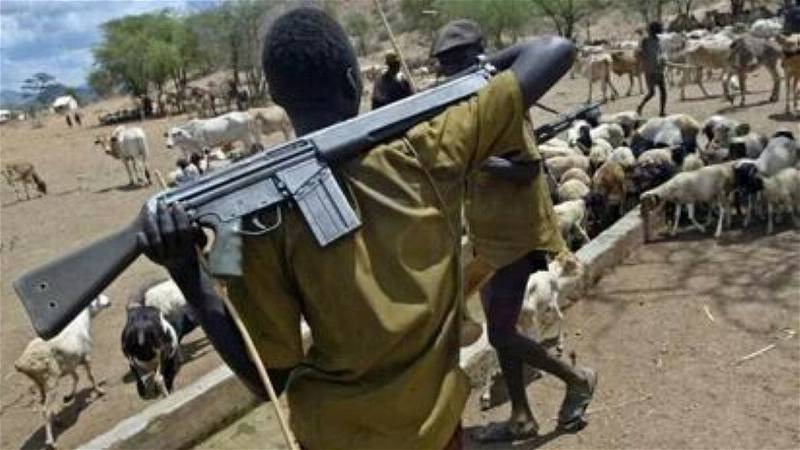
Nigeria’s Benue State Government will conduct a census of livestock and their owners as part of efforts to end the ongoing farmers/herders clashes and other forms of criminality in the state, an official said on Monday.
Dr. Aondoakaa Asambe, the Principal Special Assistant (PSA) to the State Governor on Livestock Development and Transboundary Animal Disease Control, `who announced this on Monday after an assessment tour of abattoirs and livestock markets in Makurdi, the state capital, revealed that Governor Hyacinth Alia had already implemented measures to transform the livestock sector, assuring that significant steps were being taken to resolve the conflicts in the state.
“In the short term, our plans are to conduct the census, register livestock farmers, hatcheries, and feed mills with the goal of meeting local consumption demands,” the official said.
According to Dr. Asambe, collecting accurate data on livestock in the state will not only help end the farmers/herders clashes, cattle rustling, and related crimes, but also assist the government in meeting the expectations of the people in the sector.
“Conducting a livestock census has numerous benefits. The major one is that it helps control the incessant clashes between farmers and herders. It will also curb animal rustling. Once the census is conducted, we will be able to trace all animals to their owners, as they will be tagged. All animals brought to abattoirs must also have tags, reducing crime within the industry to the minimum,” he said.
Dr. Asambe also highlighted that the tour revealed that all abattoirs in Makurdi failed to meet the minimum standards required in the sector. He assured that the Governor Alia-led administration would take action to address this issue.
At the Wurukum Abattoir, Mr. Austin Ugwu, Chairman of the Meat Shops Owners Association, Makurdi branch, shared the challenges faced by the sector. He urged the government to provide essential services, including water, access roads, and a better working environment to improve their business operations.
The conflict between Fulani herdsmen and farmers in Nigeria has been a longstanding issue, resulting in violence and loss of lives.
The Fulani people are believed to be the largest semi-nomadic group globally, found across West and Central Africa. In Nigeria, some continue to live as semi-nomadic herders, while others have moved to cities. Unlike city dwellers, the nomadic groups spend most of their lives in the bush and are often involved in clashes with farming communities, and also engage in kidnapping for ransom. They herd their animals across vast areas, frequently clashing with local farmers.
The herders now bear sophisticated weapons and use them to terrorize many parts of the country, with security operatives ignoring many of the attacks for allegedly not getting orders to go after the criminals.
Several brutal attacks happened under former President Muhammadu Buhari – who was born to a Fulani family on 17 December 1942, in Daura, a town in Katsina State, northwest Nigeria.
The continuous unprovoked attacks triggered resistance in South-East region, inhabited by Igbo people and South-West region, inhabited by the Yoruba people.
A Yoruba activist and philanthropist, Chief Dr Sunday Adeyemo, aka Sunday Igboho, demanded end to the attacks that have cost lives of thousands. He asked the Fulani people to vacate all the forests in South-West Nigeria.
As the Akoni Oodua of Yorubaland, he is known for fighting for the rights of the Yoruba people. He is currently advocating for a sovereign Yoruba country.
Follow the KOIKIMEDIA NEWS 🗞️ CHANNEL on WhatsApp: https://whatsapp.com/channel/0029VatGuwaGufJ1s73IEk0N
